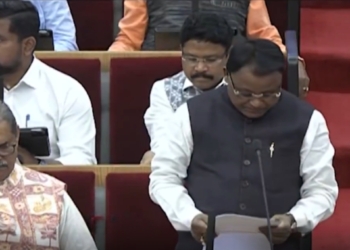US President Donald Trump has formally imposed a 25% tariff on Indian exports, intensifying his global trade offensive and triggering fresh turbulence in financial markets.
The move, announced late Thursday through an executive order, targets 69 trading partners with punitive levies — including 35% on Canada, 50% on Brazil, 20% on Taiwan, and 39% on Switzerland.
Indian goods will also face an additional penalty linked to Russian oil imports, following stalled trade talks over US demands for wider access to India’s agricultural markets — a sector New Delhi has refused to open to large-scale American imports.
Global & Domestic Market Reaction
The announcement rattled global markets. Europe’s STOXX 600 dropped 1.8%, Wall Street opened sharply lower, and India’s benchmark indices, Sensex and Nifty, fell 0.72% and 0.82% respectively.
India exports $86.5 billion worth of goods to the US annually, enjoying a trade surplus of about $41 billion. However, experts warn the new tariffs could erode competitiveness, particularly in textiles, gems and jewellery, tyres, metals, and auto components.
Ratings agency ICRA cut India’s GDP growth forecast for FY26 from 6.2% to 6.0%, warning exports could fall 30% to $60.6 billion.
Sectoral Impact & Exemptions
Electronics, pharmaceuticals, energy products, and critical minerals have been exempted from the new levies. However, sectors like labour-intensive manufacturing may lose market share to Asian competitors facing lower tariffs — Vietnam (20%), Indonesia (19%), Japan (15%).
Questions also persist over Washington’s threat of additional penalties on India’s Russian crude purchases, which could fuel higher global oil prices and raise India’s annual import bill by $13–14 billion for every $10/barrel price hike.
Trade Talks in Limbo
A potential US-India trade agreement — under negotiation since February — could ease tariffs, but disputes over agriculture, tariff reciprocity, and pending WTO cases remain sticking points.
US strategic experts warn of missed opportunities if the talks stall. “This interim trade package is substantial by the standards of our economic relationship and provides a foundation for future engagement,” said Basant Sanghera, former US diplomat.
Indian-American Congressman Ami Bera criticised the tariff move, calling it “misguided” and urging both nations to pursue outcomes reflecting the strength of their strategic partnership.





























